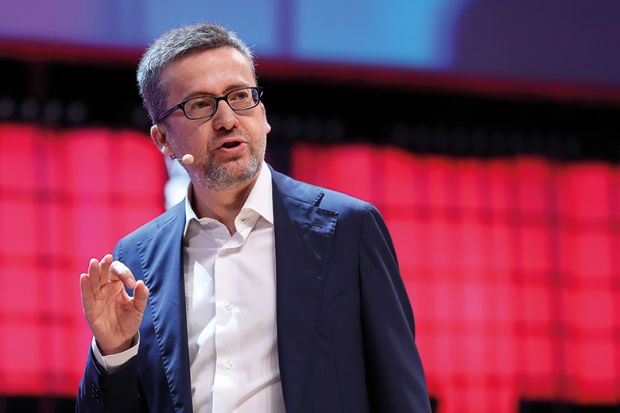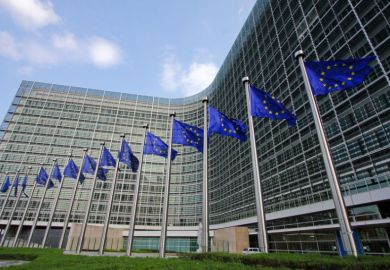The European Union’s outgoing research chief has called on nations to strike deals with academic publishers together, rather than negotiating country by country and weakening their power.
Carlos Moedas, who is at the end of a five-year term as European commissioner for research, science and innovation, told Times Higher Education that negotiating with publishers was a “great example” of something the EU should take on.
In recent years several European countries including Germany, Norway and Sweden have been locked in talks with big academic publishers such as Elsevier and Springer Nature in an attempt to shift towards open access and drive down costs.
But Mr Moedas, who will leave office at the end of October, said that the main frustration of his term had been that he “never really got a full mandate…from the member states, to negotiate with the publishers”.
In 2016, ministers from member states did agree to fully switch to open access publishing by 2020, he pointed out – although last year an EU report said that the bloc was set to miss this target.
But nations had not given the EU the job of negotiating a Europe-wide contract with publishers, Mr Moedas complained.
“I think that should be done at the level of the union. This is a great example of added value,” he said, referring to an area where it made sense for the EU, rather than nation states, to take the lead.
Mr Moedas said that when publishers negotiated “country by country”, they were able to create “arbitrage”: a concept from the financial world whereby a company is able to profit from price differences in different markets.
Member states should say “we mandate you to do it”, Mr Moedas said. “This is very difficult to do.”
He stressed that he was not setting a Europe-wide negotiation as a goal for his successor, Mariya Gabriel, who will take over responsibility for research on 1 November as commissioner for a renamed “youth and innovation” portfolio.
But Mr Moedas said: “When I arrived [as commissioner], no one was talking about open science. Nobody was talking a lot about open data and open access. And in two, three years we were able to at least have a political decision [on open access]. Politics takes time, that’s part of the checks and balances of the system.”
“The countries have the key,” he added.
During Mr Moedas’s term, the commission launched Plan S, an agreement struck last year by 16 national research funders, plus several foundations and the European Research Council, to by 2021 make grant recipients publish their results open access – and to strike “transformative agreements” with publishers to achieve this goal.
But, he acknowledged, these deals would still be negotiated at a national level.
Asked what he was most proud of as commissioner, Mr Moedas pointed to the European Innovation Council, a body that Brussels hopes will provide the funding to allow “innovators, entrepreneurs, small companies and researchers” to scale up “bright ideas”, and to help close Europe’s venture capital funding gap with the US.
It is currently being piloted – at a cost of €2.7 billion (£2.4 billion) – and will be a major part of Horizon Europe, the EU’s next research and innovation package, receiving €10 billion from 2021-2027.
POSTSCRIPT:
Print headline: Moedas: Europe should lead talks with publishers
Register to continue
Why register?
- Registration is free and only takes a moment
- Once registered, you can read 3 articles a month
- Sign up for our newsletter
Subscribe
Or subscribe for unlimited access to:
- Unlimited access to news, views, insights & reviews
- Digital editions
- Digital access to THE’s university and college rankings analysis
Already registered or a current subscriber?








